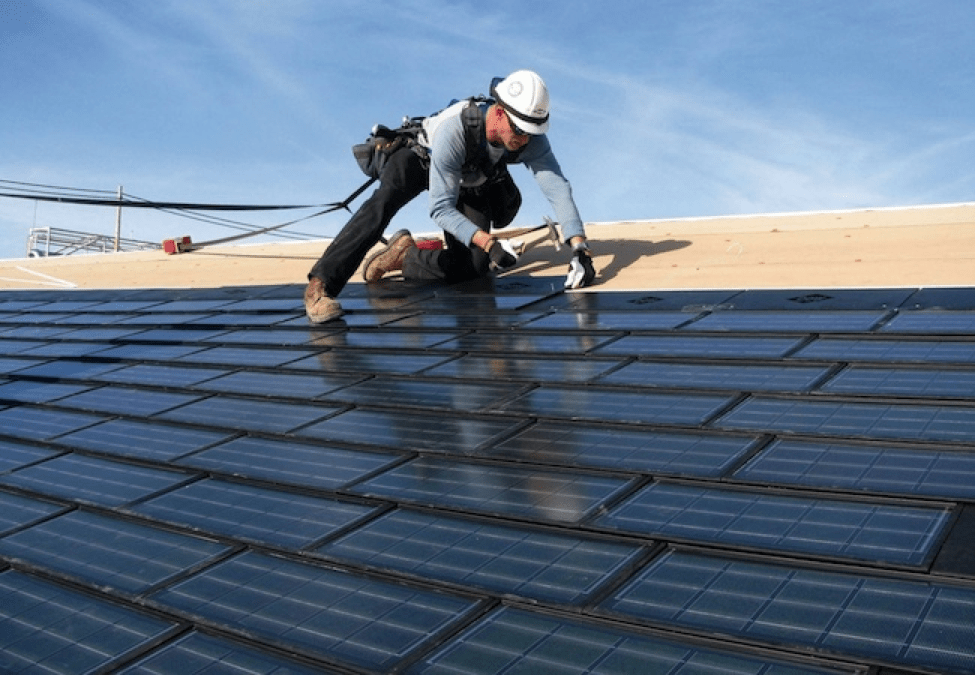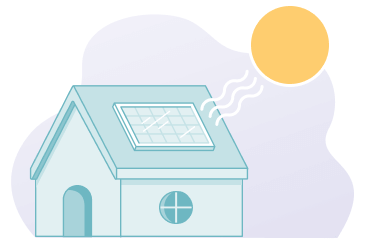Top-Rated Solar Installers Near You In Portland, OR
Going solar is one of the smartest ways to lower your energy bills and increase your home’s value. Whether you’re motivated by savings, sustainability, or energy independence, local solar panel installers in Portland, OR can help you design a system that fits your roof, budget, and long-term goals.
Because Portland experiences wet winters and dry summers and an average of 63°F highs, efficient solar systems here can generate strong year-round performance. Modernize connects homeowners with licensed, vetted solar contractors who understand Oregon’s incentives, rebates, and energy policies.
What Does It Cost to Install Solar Panels in Portland?
The average residential solar panel installation in Portland costs between $15,000 and $25,000 before incentives. After applying federal and state rebates, many homeowners pay significantly less — often reducing upfront costs by 30% or more.
Pricing depends on your system size, roof type, equipment quality, and local labor rates. Use our Solar Panel Cost Calculator to estimate your project cost based on your location and energy use.
| System Type | Average Cost Range |
|---|---|
| Standard Solar Panels (3–8kW) | $7,500 to $28,000 |
| Solar Roof Shingles | $63,000 to $75,000 |
| Solar Water Heater | ~$9,000 |
| Solar Pool Heater | ~$5,000 |
| Solar Air Heater | ~$6,500 |
| Solar Battery Storage | $9,000 to $19,000 |
| Labor and Installation | ~$70/hour or ~$2,000–$4,000 |
| Panel Removal & Reinstall | $300 to $1,000 per panel |
Note: Solar pricing in Portland, OR reflects average national material and installation costs. Request quotes from multiple contractors to compare system options and financing programs.
Best Solar System Options for Oregon Homes
Homes in Portland — which sits in a marine west coast climate with 81°F summer highs and 34°F winter lows — benefit most from systems designed for efficiency and durability. Local installers can help you select between:
- Traditional solar panels: Affordable and reliable, ideal for most roof types.
- Solar shingles: Sleek design that integrates with your roofing.
- Solar battery storage: Store excess power for nights or outages.
- Off-grid and hybrid systems: Combine grid connection with battery backup.
Common Solar Services Offered by Local Contractors
Licensed solar companies in Portland provide full-service installation and maintenance, including:
- Residential solar panel design and installation
- Battery storage system setup
- Solar roof shingle installation
- System removal and reinstallation
- Solar heating for homes and pools (see costs)
- Panel repair, optimization, and monitoring
- Energy output analysis and performance upgrades
Why Work With a Local Solar Installation Contractor In Portland, OR
- Knowledge of local permits and grid requirements: Pros in Portland guide you through utility approvals and interconnection paperwork.
- Faster site assessments: Local experts can evaluate your roof quickly and provide personalized system recommendations.
- Expertise in Oregon incentives: Contractors stay updated on rebates, net metering, and renewable energy programs.
- Ongoing maintenance and service: Get long-term support and warranty coverage from nearby professionals.
Get Started With Trusted Solar Installers in Portland
Modernize helps homeowners in Portland, OR connect with certified, insured solar contractors ready to design and install your system. Compare free quotes, explore financing, and take advantage of current Oregon solar incentives to start saving on your energy bills.
Ready to go solar in Portland? Get matched with top-rated local installers.





